The group also took an extensive tour of The Shard, an iconic skyscraper designed by Renzo Piano enclosing a 'vertical city' with a popular panoramic viewing deck. When the building opened in 2012 above a major transportation hub, it was London's first mixed-use high-rise and since has seen tremendous success as a destination for tourists and locals alike, making it an important and unique asset for the city's economy, tourism, and real estate market.
"In response to emerging trends like increased remote work and calls for sustainable development practices, the real estate industry is evolving to meet the changing needs of the market," said Alfonso Orozco (M.P.S. RE '23) and Marsella (M.P.S. RE '23). "By immersing ourselves in some of the world's most impressive real estate projects, such as The Shard, Battersea Power Station, Covent Garden, and Canary Wharf, and viewing contrasting approaches to current office development — for example, the Argyll Club serviced office in the West End, versus the redevelopment of a longer leased asset such the YY Building — we learned about the importance of preserving London's rich heritage while creating innovative and sustainable spaces in the present for the future."
Real Estate Education at a Ground Level in London and Miami
Cornell Baker Program in Real Estate graduate students and faculty trekked far beyond the Ithaca campus for firsthand looks at current and shifting trends in urban development and the real estate industry in London, England, and Miami, Florida.
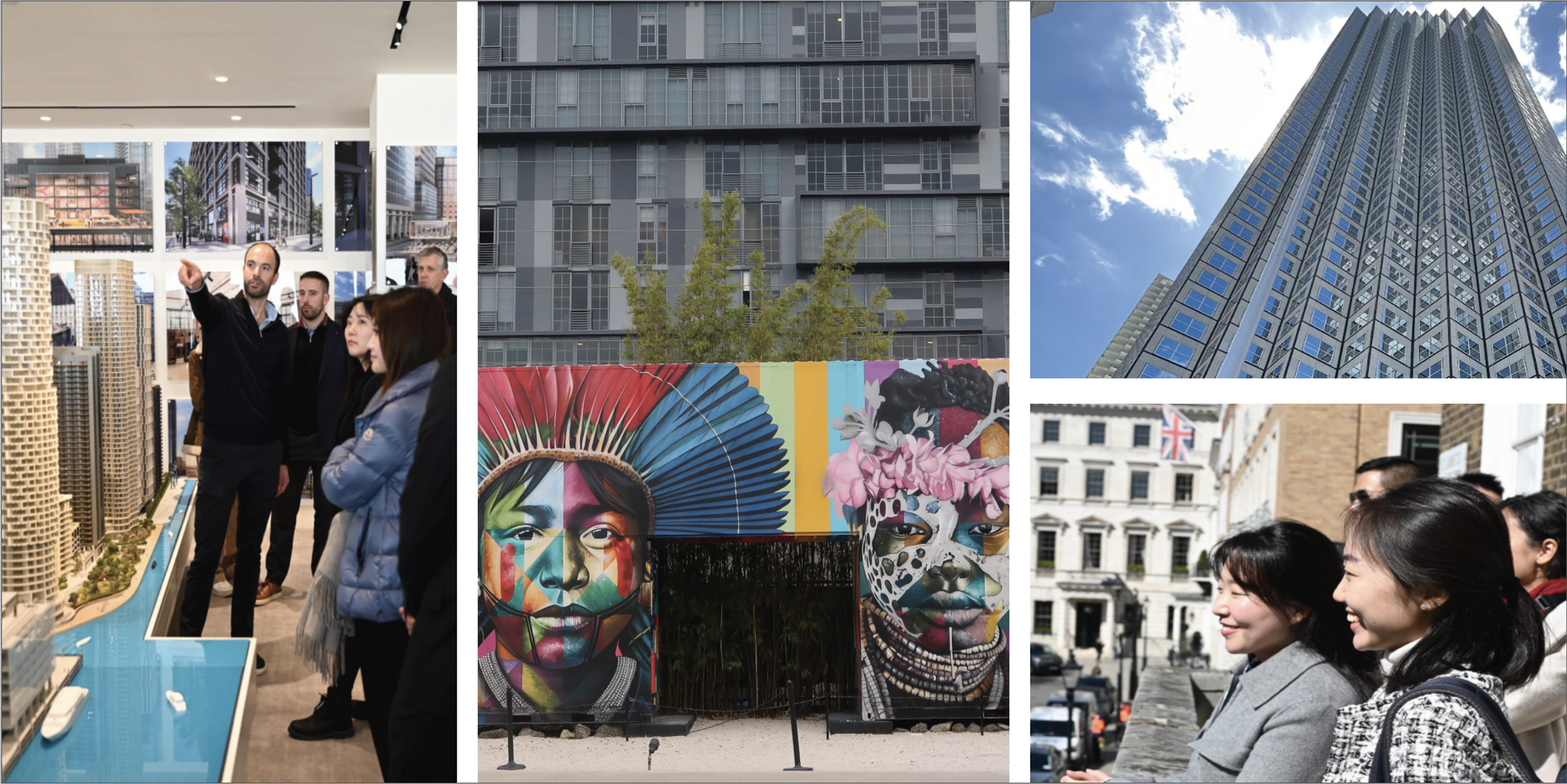
Students and faculty visited a wide range of industry practitioners, buildings, and neighborhoods throughout London and Miami. images / provided
This spring saw the majority of first- and second-year students in the Cornell Baker Program in Real Estate off on treks to Miami and London where they engaged firsthand a number of crucial issues facing the built environment. Led by Acting Chair of the Paul Rubacha Department of Real Estate Suzanne Lanyi Charles, and planned by new faculty Christopher de Mestre and Acting Baker Program Director Cody Danks Burke, both itineraries were filled with extensive tours around and through different properties, projects, and neighborhoods, as well as a number of networking events and meetings with industry practitioners.
Though different in many ways, Charles noted that Miami and London were of particular interest this year for all of the tangible steps the cities are taking toward mitigating climate change as they pursue models for development or redevelopment that engage timely environmental, social, and governance questions.
"Projects like Wynwood in Miami and Canary Wharf in London, for example, are really bringing to the fore questions of how real estate practitioners must address a whole host of issues in creating built environments that are feasible, socially just, and environmentally sustainable," Charles explained. "By engaging with leading practitioners in these two cities who are dealing with these issues now, our students prepare to become leaders who tackle these issues wherever they establish their careers."
Second-year students were hosted by Canary Wharf Group and Brookfield Property Partners who shared the redevelopment vision and future plans for London's primary financial district. image / Suzanne Lanyi Charles
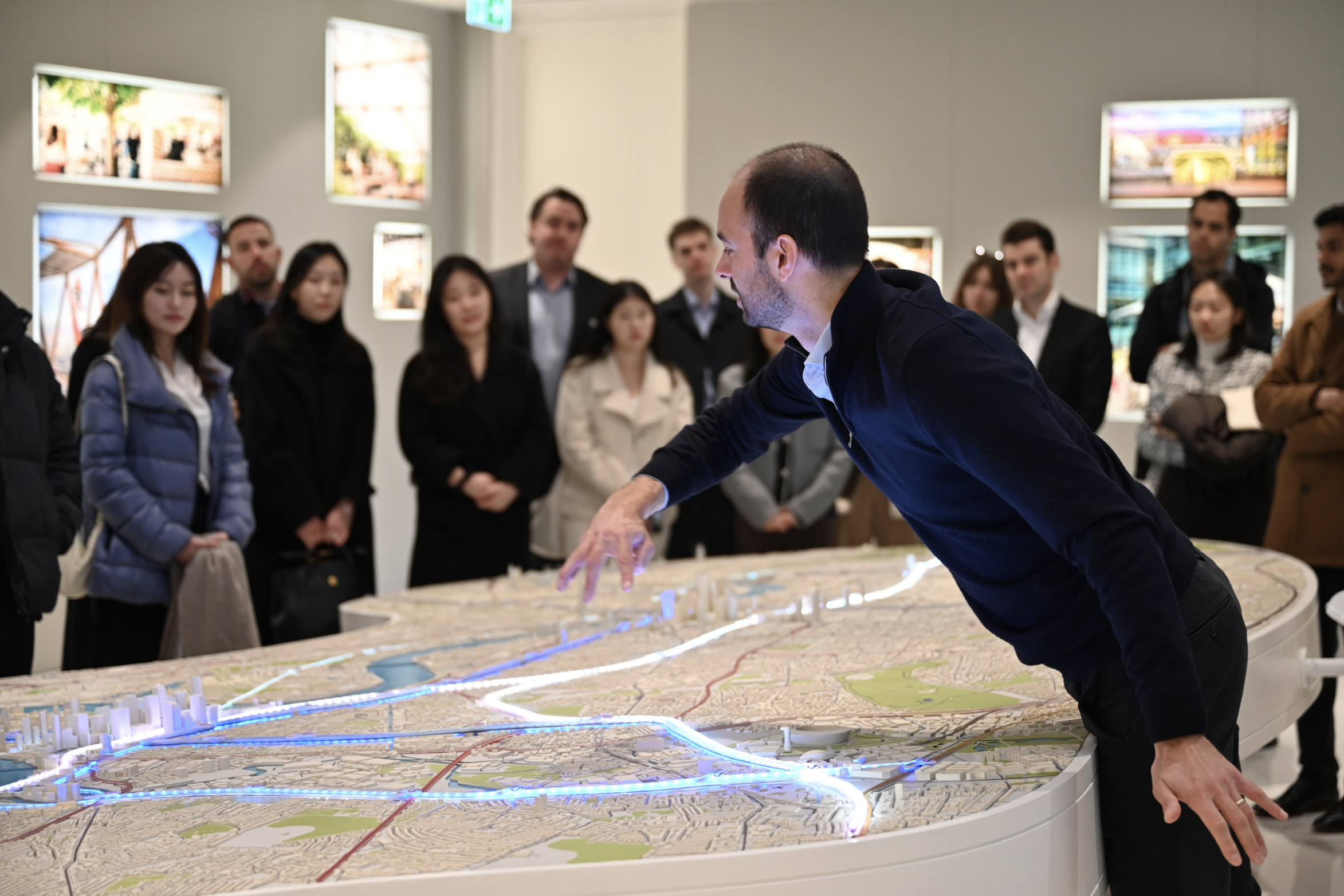
First-year students met with development offices in Miami's iconic Wynwood District where they discussed intersections in neighborhood history, art, and real estate. image / Rohit Kharche (M.P.S. RE '24)
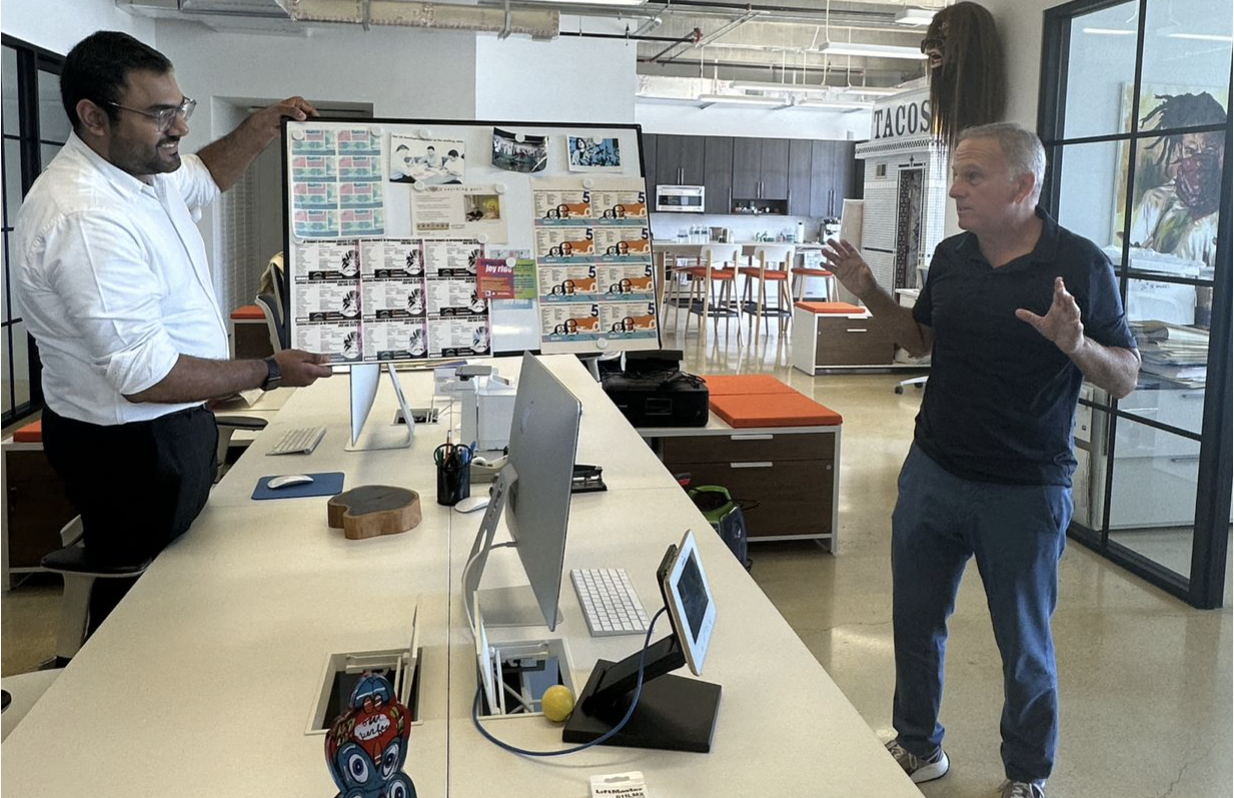
Second-year students were hosted by Canary Wharf Group and Brookfield Property Partners who shared the redevelopment vision and future plans for London's primary financial district. image / Suzanne Lanyi Charles
In, Through, and Around London
De Mestre, who guided the group of about 30 second-year students through London, added, "The city and the real estate industry are fundamentally changing and adapting to circumstances, and students get a much keener sense of this when they place broad concepts like sustainability, revitalization, or strategies for mixed-use development in context. This was clear as we toured the city, saw a phenomenal mix of projects, and met with many professionals who shared brilliant insights on professional practices and ongoing transformations across different segments of the industry."
Among many stops was Canary Wharf (above). Though a landmark complex of tall office buildings, the area is undergoing a significant transition from nearly exclusively finance and retail to a more residential neighborhood with community amenities, ushering in a new phase for the area and signaling adaptation to increasing remote work and other changes in demand.
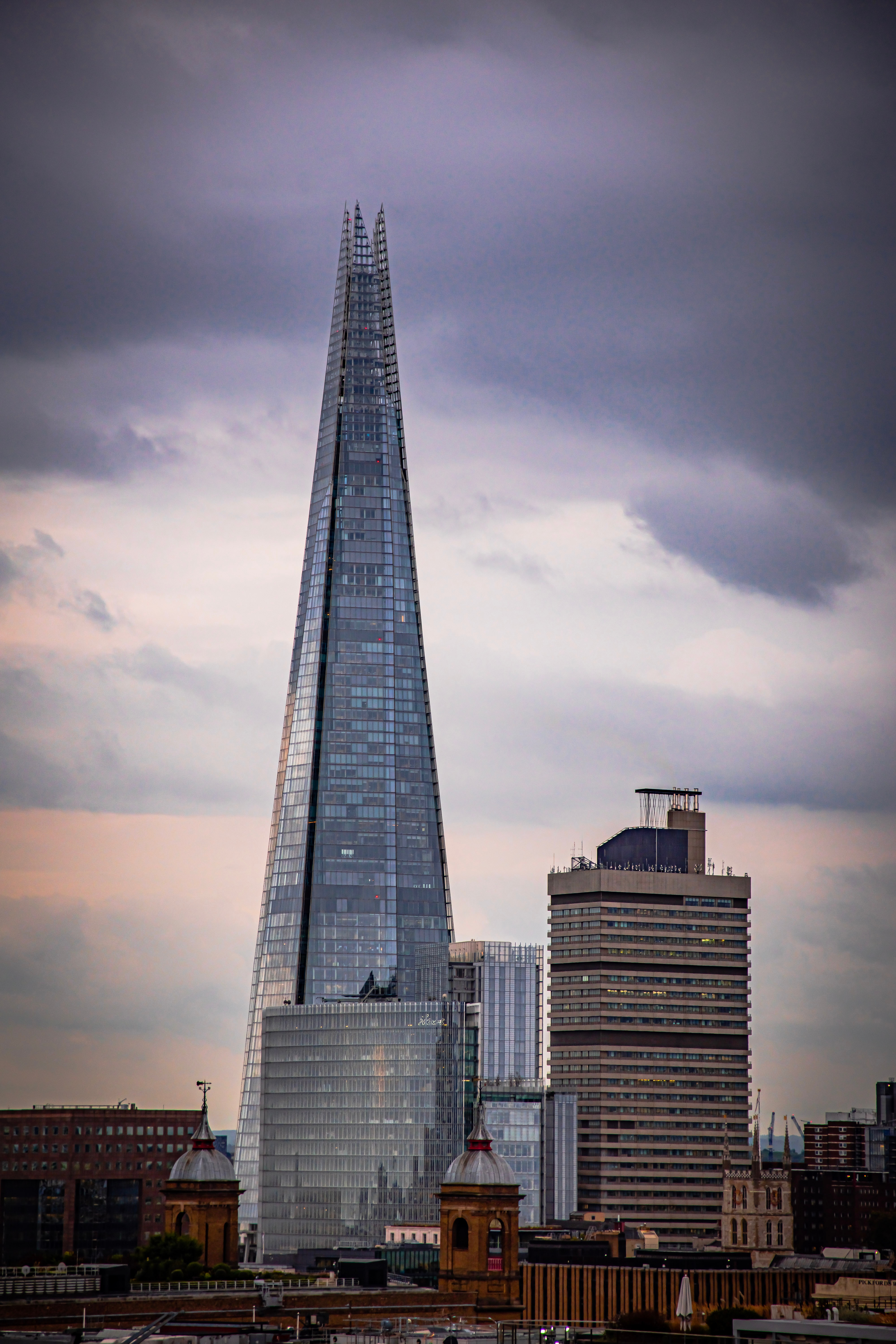
The Shard, London. image / George Ciobra
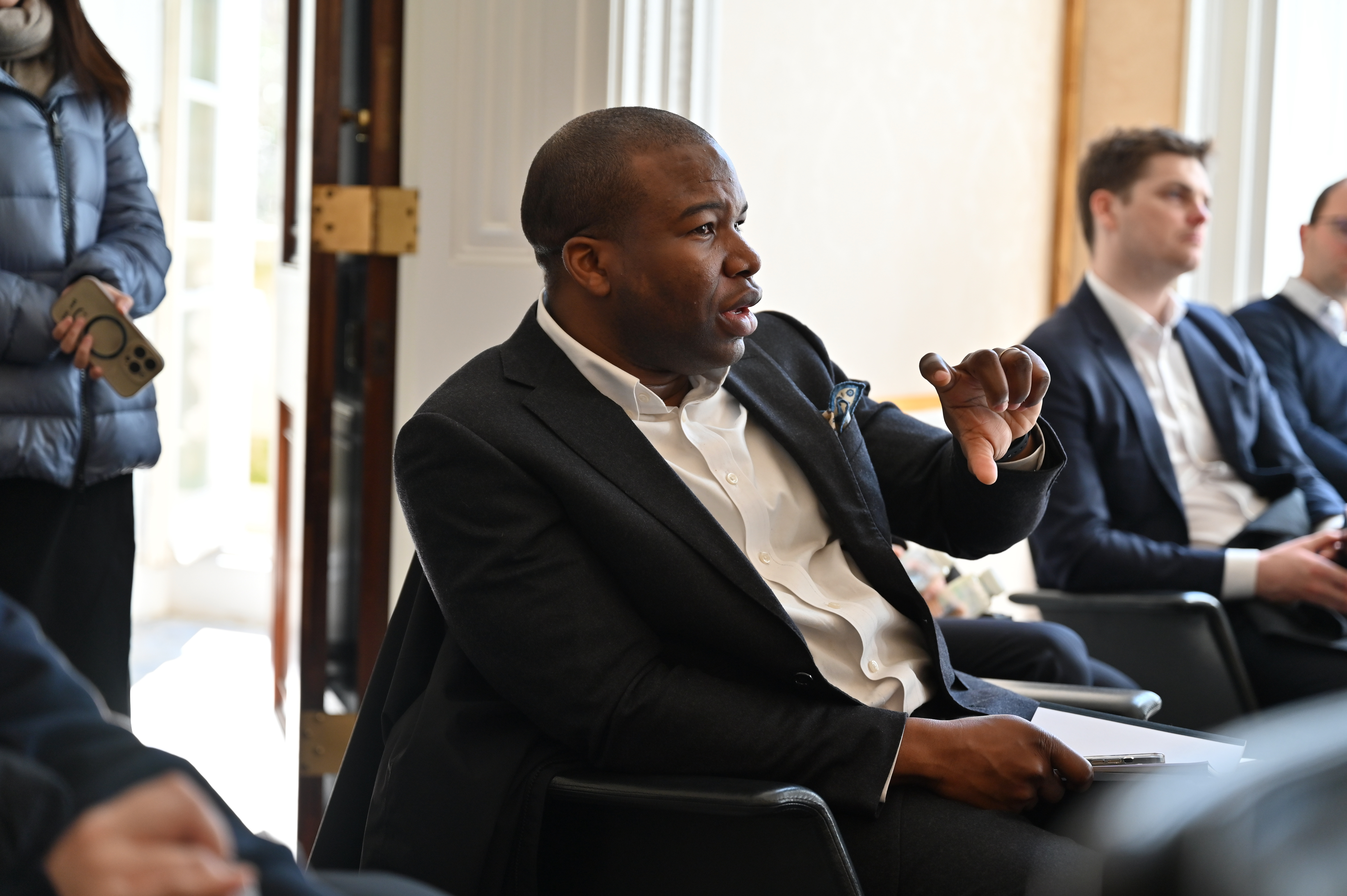
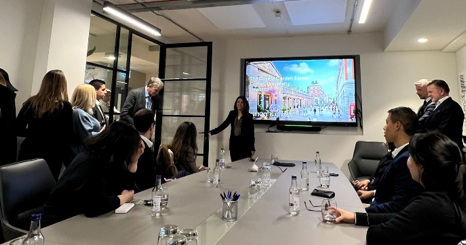
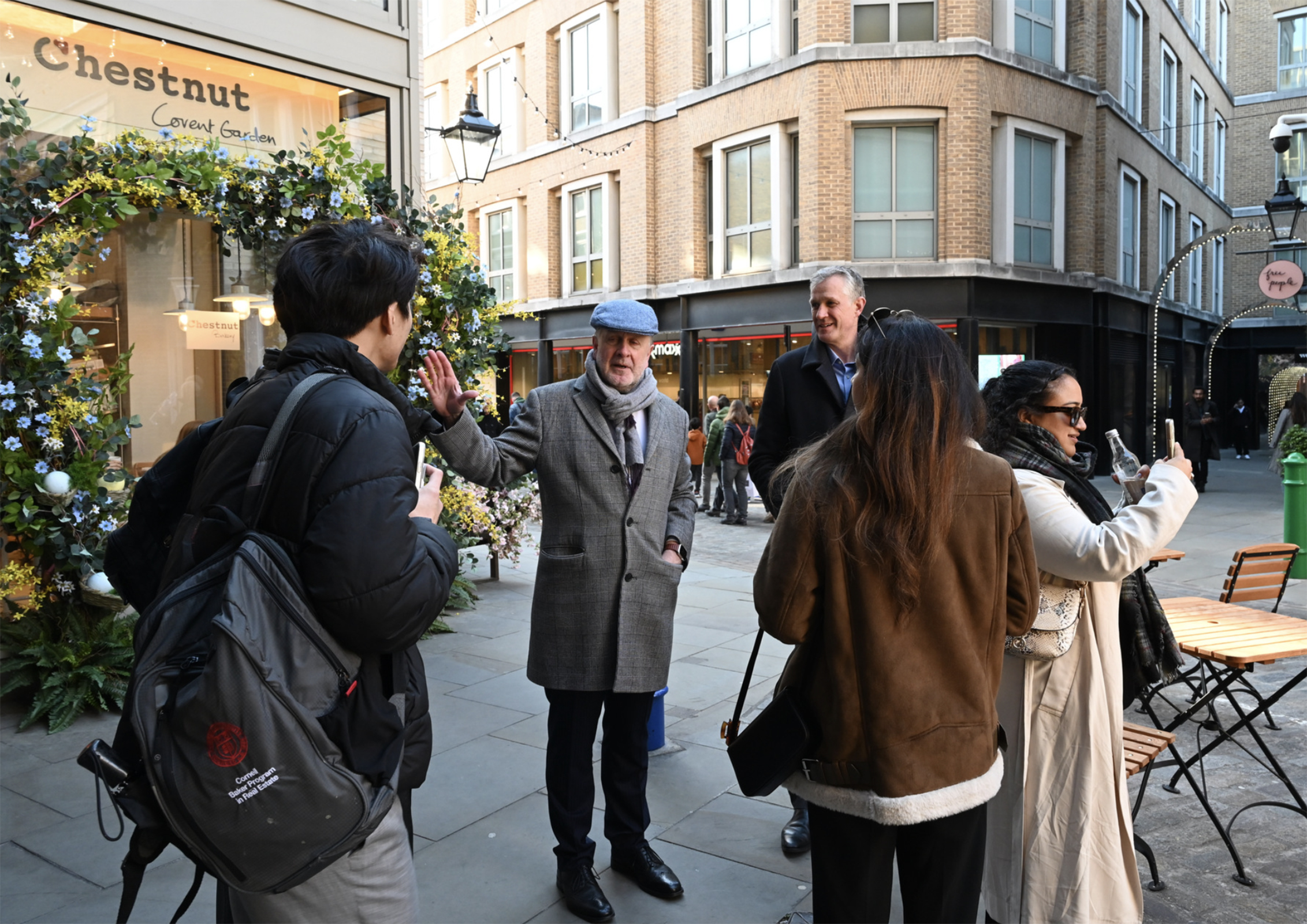
In London, the tour stopped at Argyll Club (top left), the Battersea Power Station (top right), and Covent Garden (bottom), among many other places and offices around the city. images (from top left) / Suzanne Lanyi Charles, Alfonso Orozco (M.P.S. RE '23), Suzanne Lanyi Charles
Three Days in Miami
Across the Atlantic, first-year graduate students spent three days in and around Miami, Florida. Given the city's extraordinary population explosion in recent years, the group focused on some of the unique ways that Miami is responding to growth with density, cultural awareness, and adaptive reuse strategies.
"Coming away from our trip, I think we were all excited and fascinated by how Miami's development strategy accounts for population growth based on both its future prospects and current limitations — and how it positions itself as a culturally conscientious leader and trend-setter with a high regard for people, place, and culture," said first-year student Rohit Kharche (M.P.S. RE '24).
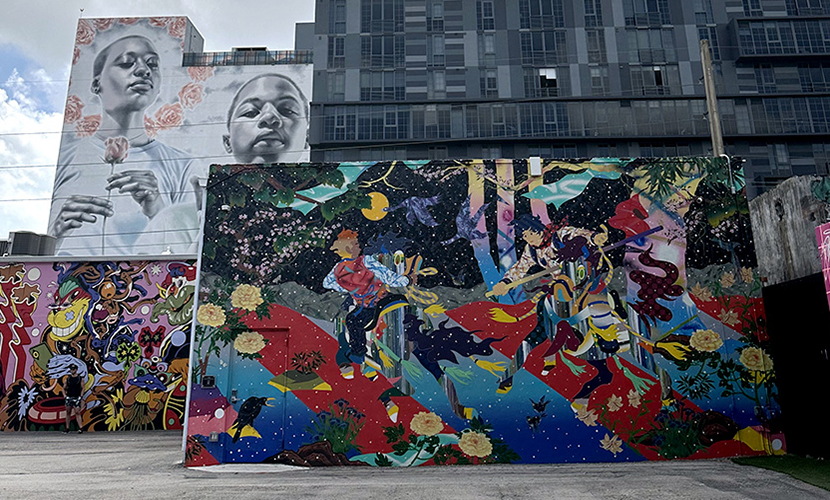
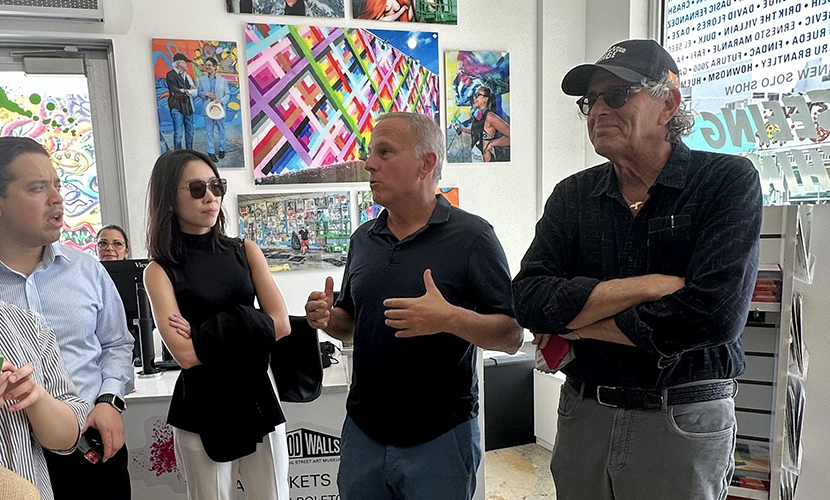
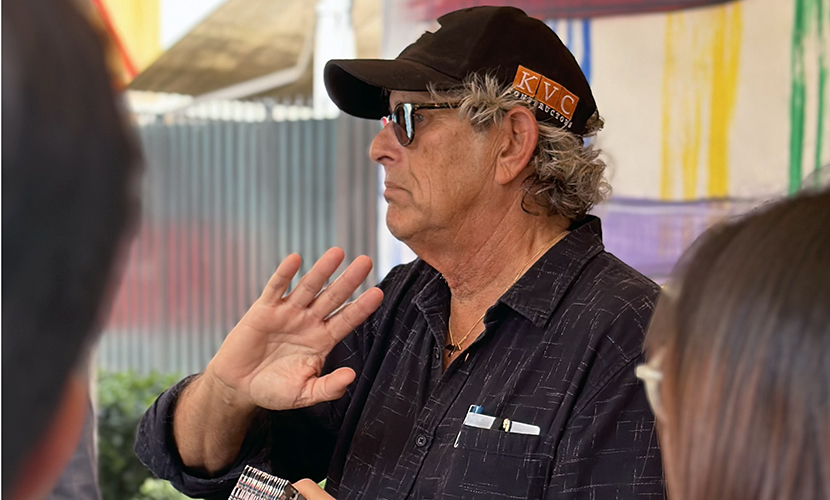
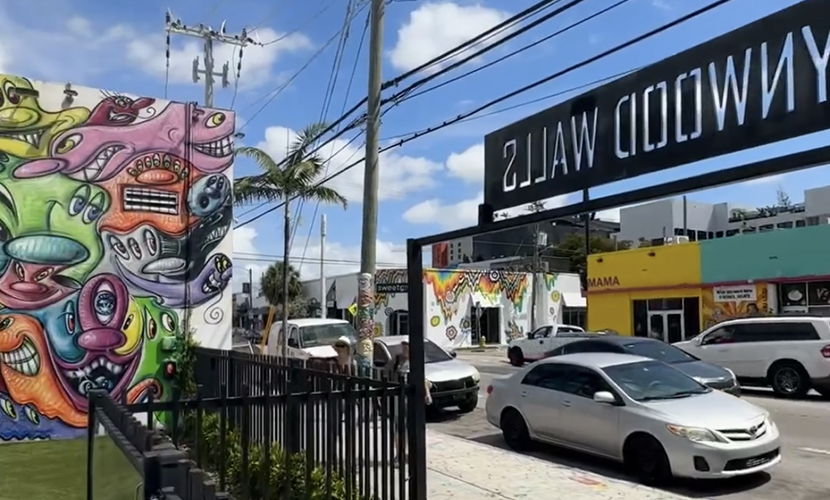
A particular point of interest was Miami's Wynwood district, which is currently undergoing new development led primarily by Related Group and Lombardi Properties (both of whom had tours and in-depth discussions with the students) and is often revered for its Wynwood Walls project. Students visited this up-and-coming area with an eye toward how to preserve the history and cultural identity of the community of artists who live there. They spoke to real estate professionals about everything from the history of the neighborhood to the integration of art and real estate, with the takeaway being that development and respect for both history and the needs of the community can coexist and advance in parallel.
According to the faculty, the direct experience the treks provide students are critically important to the study and understanding of real estate as a complex field that is very much tied to the particulars of place and that offers myriad career paths to those entering the industry today.
"In the classroom, we often speak about real estate at a high level, which has its place in understanding the industry as a whole, but this can obscure some critical differences across geographies," said Danks Burke. "The treks give Baker students a sense of the finer scale and specificity that broadens their thinking on both a range of urban conditions as well as the many possible career paths ahead of them."
Networking Opportunities
Networking with professionals in the real estate industry had a strong and positive effect on students as they processed possibilities for their future that they may not have considered otherwise. For example, in London, the itinerary offered opportunities with members of the Cornell Real Estate Council and the Commercial Real Estate Finance Council and their guests from across the industry.
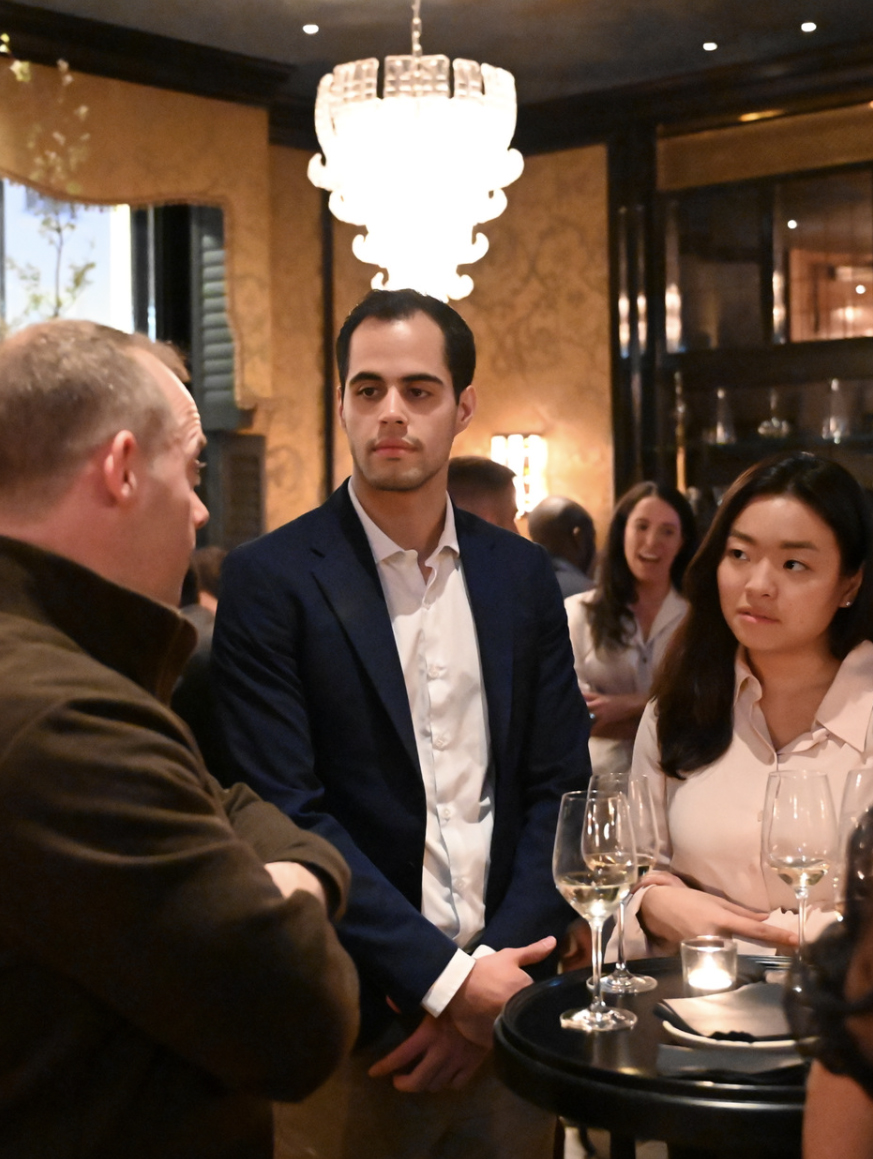
Commercial Real Estate Finance Council and industry gathering in London. image / Suzanne Lanyi Charles
According to de Mestre, "On top of their incredible experience of London as a city with both nuance and potential, meeting and talking to industry practitioners had students thinking differently, and very excitedly, about their studies, work, and future."
Orozco and Marsella echoed this sentiment: "The London trek provided us all invaluable perspective on operations, objectives, and strategies in the industry today. The firsthand exposure to so many amazing projects and the people behind them allowed us to grow both personally and professionally."
Through both the treks and classroom instruction, the Baker Program in Real Estate has long focused on supporting students on their path to professional practice with both knowledge and experience.
Second-year Baker program group at Canary Wharf in London. image / Suzanne Lanyi Charles
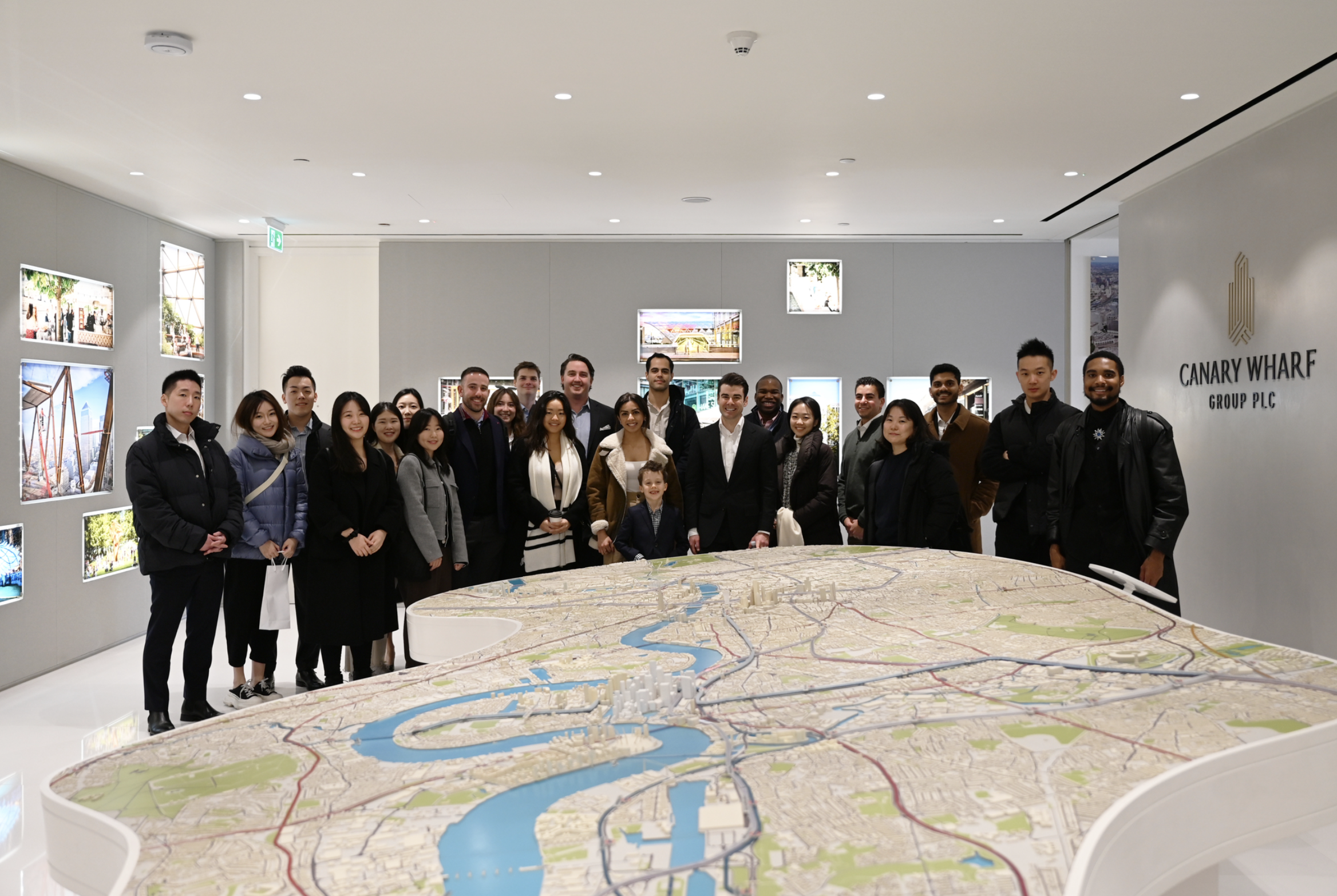
First-year Baker Program group in the Wynwood District of Miami. image / Rohit Kharche (M.P.S. RE '24)
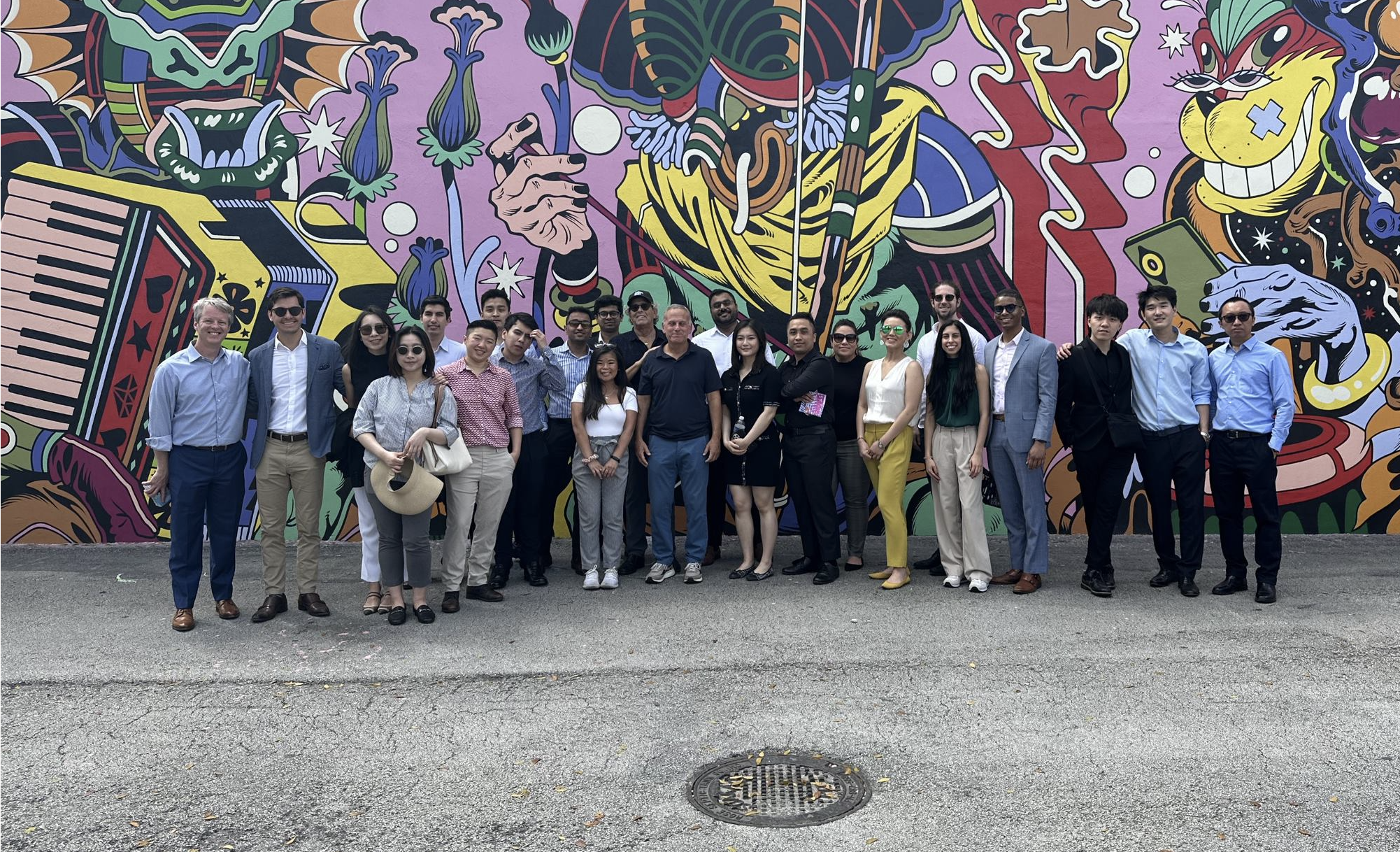
Second-year Baker program group at Canary Wharf in London. image / Suzanne Lanyi Charles
The program is housed within the jointly led Paul Rubacha Department of Real Estate at Cornell. The department was recently launched with a gift from Cornell alumnus Paul Rubacha '72, '73 and stems from a partnership between the College of Architecture, Art, and Planning and the SC Johnson College of Business meant to advance real estate education at Cornell by fostering a spirit of collaboration, innovation, and change-making across their disciplines.
"The department is truly special because it brings together the deep and diverse expertise in real estate from the two colleges that share interest," shared Charles, who is also an Associate Professor of City and Regional Planning at AAP. "This multidisciplinary ethos was particularly evident during the treks. Collectively, our students engaged with London and Miami at a ground level, and critically, with a broad range of top industry professionals — from low-income housing developers to real estate private equity investors — involved in creating inspiring built environments that shape cities now and in the future."
Stay connected! Follow @cornellaap on Instagram, Facebook, Twitter, and LinkedIn; subscribe to our AAP bi-weekly newsletter.









